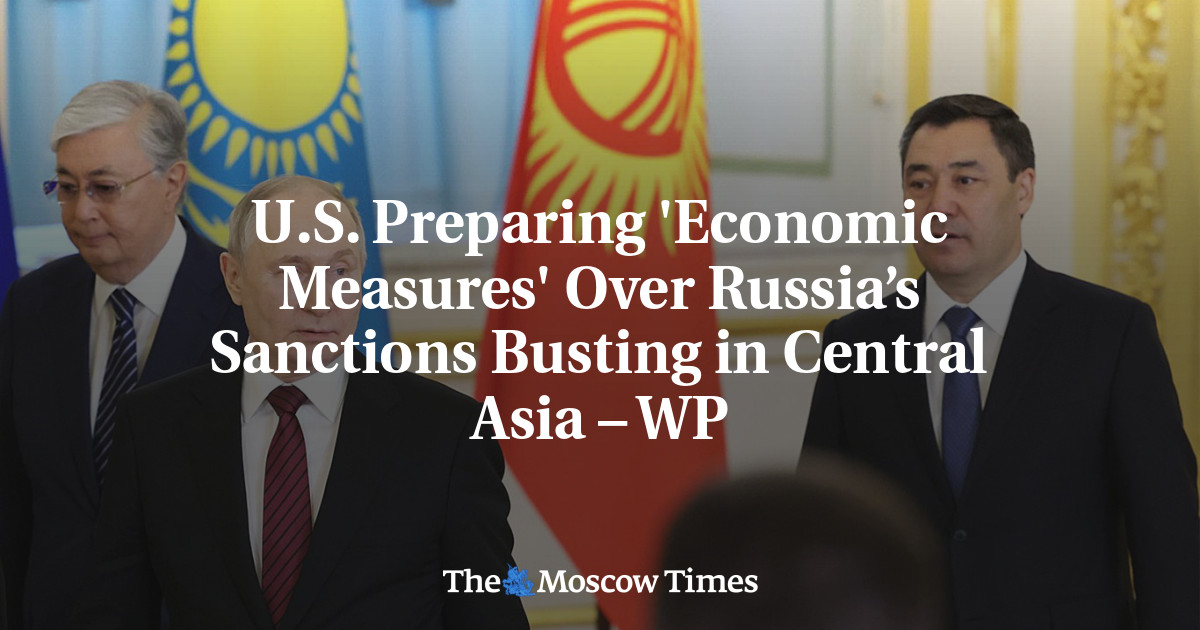
The United States may soon impose secondary sanctions on Kyrgyzstan for helping Russia procure sensitive technologies for its war effort in Ukraine, The Washington Post reported Wednesday, citing two anonymous U.S. officials familiar with the matter.
The small Central Asian republic saw a “striking” expansion of import-export companies profiting from sales of Chinese and European drones, aircraft parts and bomb circuits to Russia in recent months, said a senior official with detailed knowledge about the transactions.
The Biden administration could impose new economic measures to pressure Kyrgyzstan to halt the sanctions-busting trade of banned goods with Russia as early as this week, according to the WP.
The decision was reportedly reached after “months of fruitless visits” by U.S. and European diplomats to the Kyrgyz capital of Bishkek.
Previous U.S. measures included blacklisting Kyrgyzstan-based companies accused of sanctions evasion.
A 250% surge in exports to Russia in 2022 — with items like rifle scopes not previously known as a bilateral trade item — reflects the scale of the Kyrgyz “shadow bazaar,” WP wrote.
Most of the Russian recipient companies of Kyrgyz-supplied goods also supply Russia’s defense industry, the unnamed U.S. official said.
They alleged that Russia’s intelligence services are involved alongside war profiteers in closely coordinating the Kyrgyz companies’ procurement of sensitive electronics and exports to Russia.
The Kyrgyz Embassy in Washington acknowledged previous reports of sanctions violations but maintained Bishkek’s commitment to adhering to international regulations and cracking down on contraband and other illicit trade.
“Kyrgyzstan and Russia are members of the [Moscow-led] Eurasian Economic Union and, in general, Russia is one of our main trading partners,” it said. “More than a million of our citizens work in Russia.”
Total exports to Russia from Moscow’s regional allies Armenia, Georgia, Kazakhstan, Kyrgyzstan and Uzbekistan rose by almost 50% to $15 billion last year, according to a Wall Street Journal analysis of UN trade data.
The same countries nearly doubled their imports of U.S. and EU goods from $14.6 billion in 2021 to $24.3 billion last year, WSJ said in May.
“Kyrgyzstan, while small relative to other countries, is a clear example of every factor at play at once to create an unacceptably [sanctions] evasion-friendly environment,” WP quoted one of the U.S. officials as saying.